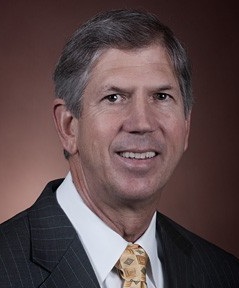
Ensuring affordable and reliable energy is one of the biggest challenges facing America, but also one of our greatest opportunities. Tough national issues include rising energy demand, joblessness and economic weakness, energy insecurity and inefficiency, and uncertainty about future supplies. At the same time, we are seeing the emergence of new energy sources and innovations that can be the catalysts for a stronger, more secure and sustainable future. Unfortunately, after years of debate, the United States lacks a coherent national energy strategy that can put our country on a path toward economic growth, global competitiveness and environmental improvement.
Americans agree. An overwhelming majority of voters (94 percent) believe that a “comprehensive energy policy is essential to building a strong economy, creating new jobs, and making America more competitive with other countries,” according to a national survey conducted in February by Clarus Research Group.
A comprehensive energy policy must maximize all domestic sources, including oil and natural gas; renewables and alternatives; coal, nuclear and greater use of technologies such as combined heat and power (CHP). It needs to prioritize greater energy efficiency in homes, buildings and industrial facilities. It must use economically sound approaches to encourage the adoption of diverse energy sources, including energy recovery from plastics and other materials and renewable sources. And it must contain balanced regulatory policies and permitting practices that protect the environment while allowing use of our vast resources.
A comprehensive energy policy must maximize all domestic sources, including oil and natural gas; renewables and alternatives; coal, nuclear and greater use of technologies such as combined heat and power.
The business of chemistry can be part of the answer. Through chemistry, we are creating solutions that address each of the nation’s major energy challenges.
Jobs and Economic Growth
During a time of high unemployment, chemistry is transforming domestic energy into a stronger economy and new jobs. Many chemical companies are exploring new U.S. plants or significant expansions. In fact, our use of expanded domestic ethane supplies, made possible by revolutionary shale gas finds, could lead to 400,000 new U.S. jobs, $132 billion in U.S. economic output and $4.4 billion in local, state and federal tax revenue every year, according to an American Chemical Council study.
Since chemistry is the foundation for the manufacturing sector, our improved outlook is driving an American manufacturing renaissance that will lead to more robust output, greater international competitiveness and new jobs in communities across the nation. By making the most of shale gas, we can support new manufacturing capacity here in the United States, good high-paying jobs and economic growth and prosperity for years to come.
Energy Security and Diversity
Chemistry also enables more diverse energy sources, which strengthens national energy security. Chemistry makes it possible to produce more kinds of domestic energy and electricity. From enhanced oil and gas production methods and battery and fuel innovations to energy recovery technologies that unlock the energy in discarded plastics and other materials to renewable energy solutions, chemistry is expanding America’s domestic energy portfolio. With more energy types and technologies to rely on, the nation can be more energy secure.
Energy Efficiency and Sustainability
Sustainable technologies like energy efficiency solutions and renewable energy innovations are made possible by chemistry. High performance insulations and windows, wind turbines, solar panels, and biofuels, even lightweight packaging, more efficient fuels and lightweight auto parts that reduce energy needs in shipping and transportation all start with chemistry. A recent ACC analysis found that the products of chemistry help save up to 10.9 quadrillion BTUs of energy annually, enough to power, heat and cool up to 56 million households or run up to 135 million vehicles every year.
To make the most of America’s energy resources and compete with the rest of the world, policymakers must maximize energy efficiency’s contribution to the nation’s energy portfolio. Given federal and state budget realities, however, public policies must look beyond traditional government subsidies and identify new ways to encourage energy efficiency, such as adopting updated energy efficiency building codes and supporting more combined heat and power (CHP) at industrial facilities.
To make the most of America’s energy resources and compete with the rest of the world, policymakers must maximize energy efficiency’s contribution to the nation’s energy portfolio.
The business of chemistry accounts for nearly one-third of all CHP used in manufacturing. Because most CHP facilities use natural gas to create two forms of energy – electricity and steam – with the same amount of fuel, they are often twice as efficient as older coal‐burning electric utilities. By 2030, the U.S. can meet 20 percent of its electricity needs from high-efficiency CHP, according to the Oak Ridge National Laboratory. Yet today, electricity markets are controlled in a way that prevents CHP power from industrial operators from selling their excess power back to the grid. Regulators must remove artificial barriers to industrial CHP and other kinds of distributed electricity generation.
The Right Policy Roadmap
Meeting our national goals – economic growth and new jobs, innovative industries, and global competitiveness – will require a truly “all of the above” approach. We need the President, Congress, Governors, state legislators and regulators to focus on developing policies that will help America maximize its own vast resources — natural, intellectual and technological. And we must leverage the innovation and ambition of the private sector. By combining sound energy policies with innovation and the ambition of the private sector, we can compete and win in the global economy. RF
___________________________________
Cal Dooley is president and CEO of the American Chemistry Council. From 1991 to 2004, he represented the 20th District of California in the U.S. House of Representatives.




